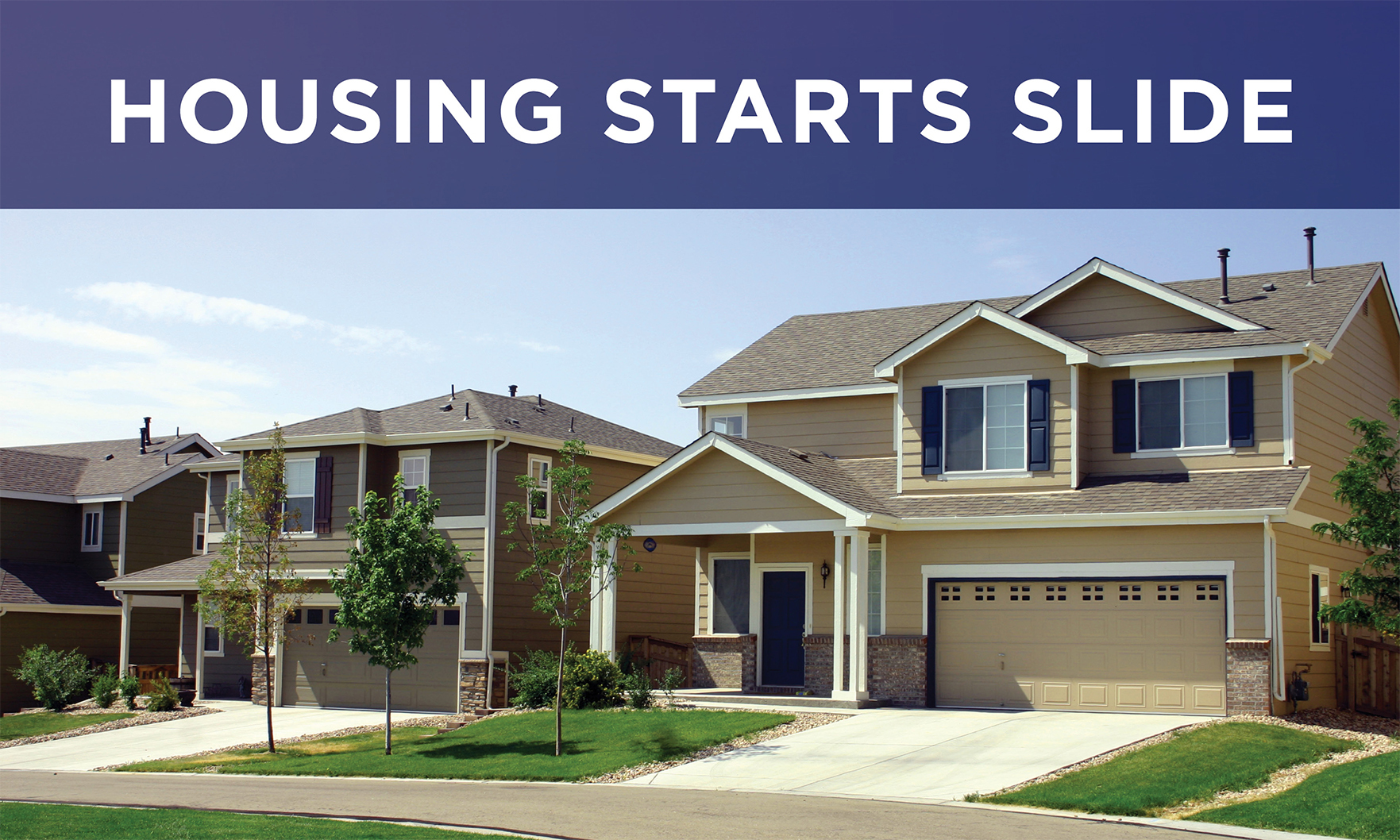New residential construction fell 9.6% in July, as both single-family and multifamily starts fell from June’s pace, the U.S. Census Bureau and the U.S. Department of Housing and Urban Development said in a press release.
New construction of single-family homes dropped 10.1% from June’s revised estimate to 916,000, while multifamily starts fell 10% to 514,000. On a yearly basis, single-family starts were down 18.5%, while multifamily remained strong, with a 17.4% increase.
Altogether, the combined construction pace of single-family homes and buildings with five or more units was down 8.1% year over year, at 1,446,000 units.
“A sharp decline in single-family home construction is another indicator that the housing slowdown is showing no signs of abating, as rising construction costs, elevated mortgage rates and supply chain disruptions continue to act as a drag on the market,” Robert Dietz, chief economist for the National Association of Home Builders, said in a news release.
The declining pace of housing starts in July was even slower than expected, as analysts were expecting it to come in at 1.52 million, compared to the reported 1.45 million, First American deputy chief economist Odeta Kushi noted.
“Housing is a primary transmission mechanism for the Federal Reserve and, as monetary tightening has intensified, so has the impact to homebuilding,” Kushi said. “Builders are responding to a pullback in demand, as rising mortgage rates have dampened affordability and caused would-be buyers to sit on the sidelines.”
Privately owned housing completions hit an annual rate of 1,424,000 in July, 1.1% higher than June and 3.5% above the previous year.
The seasonally adjusted annual rate for privately owned housing units authorized by building permits was at 1,674,000 in July, down 1.3% from June and up 1.1% from a year earlier.
Despite the challenges of high costs and high mortgage rates, the housing market continues to be undersupplied, which should alleviate concerns about a market crash, RCLCO Real Estate Consulting principal Kelly Mangold said.
“Looking ahead, housing starts are likely to continue to be impacted by interest rates, though there is still the growing demand by households who would like to buy — and who may be adjusting to the new market conditions — because in reality, interest rates are still low when compared to longer-term historical levels,” Mangold said.
